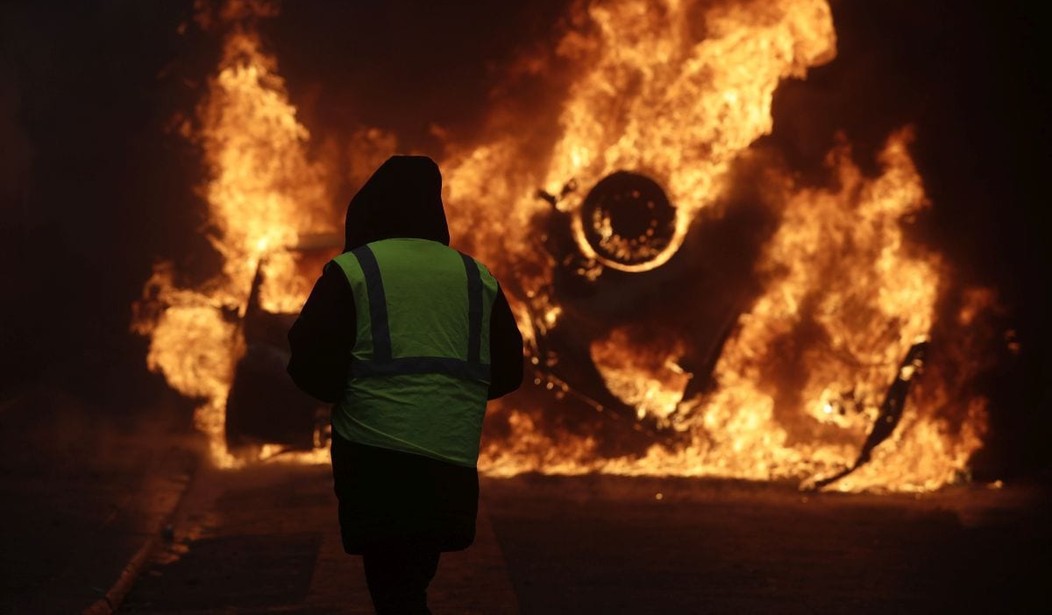Is Paris Burning? is a 1966 film about the Nazi occupation. As the Allies closed in on Paris, the German general in charge was ordered to burn the city before the Allies could seize it. After agonizing over the decision, General Cholitz refuses to level the city and Free French forces march triumphantly down the Champs-Elysees.
How ironic it is that the historic street with the Arc de Triumph in the background was the scene of several vehicle fires set by masked demonstrators who, for the second weekend in a row, are violently protesting the government of President Emmanuel Macron.
The violence started early Saturday morning near the famous Avenue des Champs-Elysees. Dozens of angry protesters, many of them wearing gas masks or ski goggles, threw rocks and projectiles toward French police. In turn, police attempted to disperse the crowd by firing tear gas and blasting water cannons.
Later in the day, violent protesters who were pushed away from the Arc de Triumph used plywood and other material to make barricades on various streets throughout central Paris. Demonstrators also set multiple cars and trash containers on fire over the course of the day.
French Prime Minister Edouard Philippe visited the Paris police command center on Saturday and announced that around 5,500 protesters attended the demonstrations in Paris on Saturday.
Philippe said some protesters attacked police forces “with a rarely seen violence.”
Nearly 200 people were arrested during the protest, Paris police told ABC News. They added that 92 people were injured, including 14 police officers.
What began as protests against a rise in the gas tax has morphed into something far more: a revolt against high taxes, the high cost of living, and the Macron government’s policies.
The nationwide protests started in small urban and rural areas of the country, where demonstrators have been blocking roads over the past three weeks. The movement has no clear leader and has attracted groups of people with a wide variety of demands.
Macron, who is currently in Argentina for the G20 summit, said earlier this week in a speech that he understood the complaints expressed by protesters but has so far refused to cancel the planned increased in fuel taxes.
“I feel your pain but go screw yourselves,” says Macron. The government response is eerily similar to the response to the migrant issue. The politicians all claim to sympathize with protesters and naysayers, but then go ahead and let more migrants into the country anyway.
This attitude is what ordinary people are rebelling against: uncaring elites instituting policies that the people must bear the burden for. The “yellow jacket” protests are growing in size and unless Macron can get a handle on the problem, there will be violence that Paris hasn’t seen since the 1960s.










Join the conversation as a VIP Member